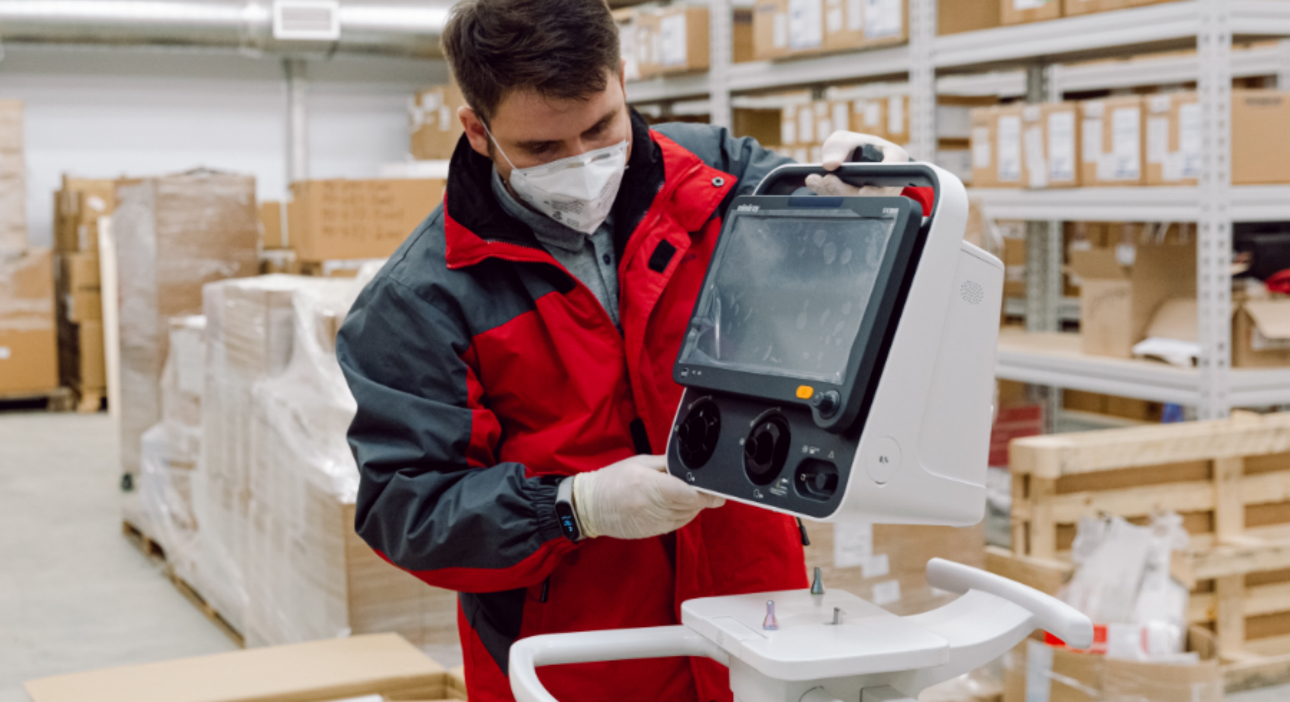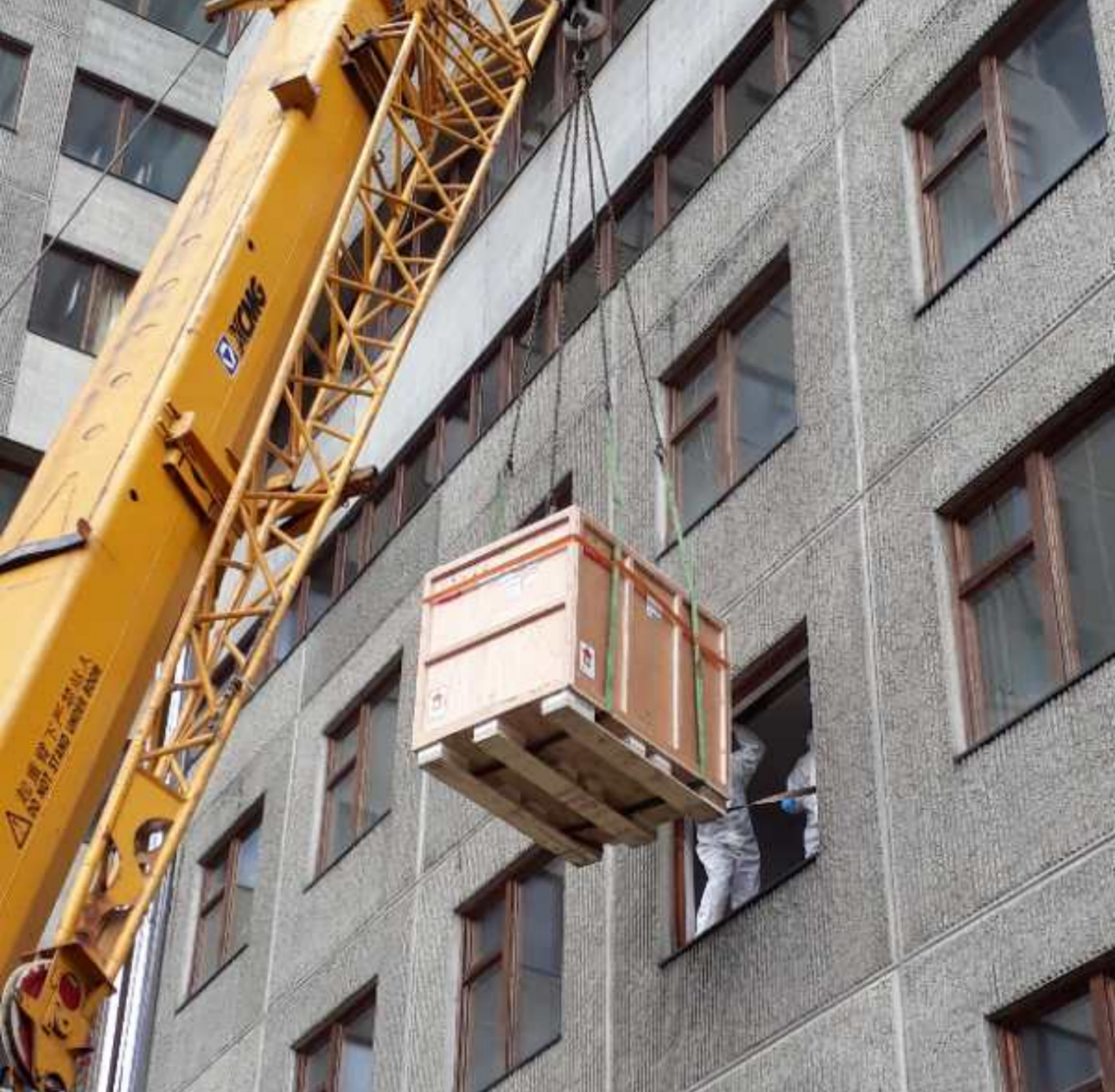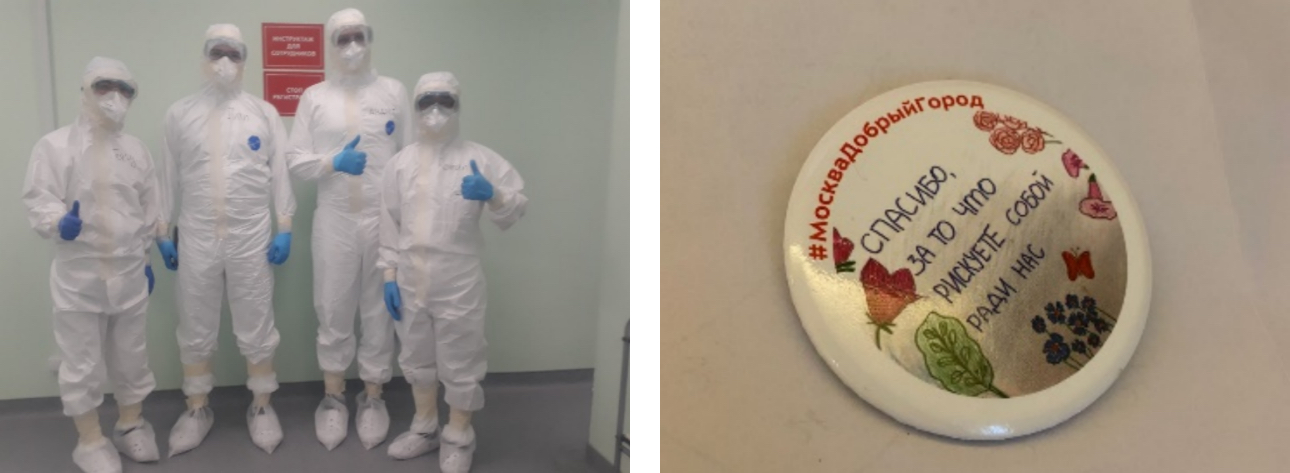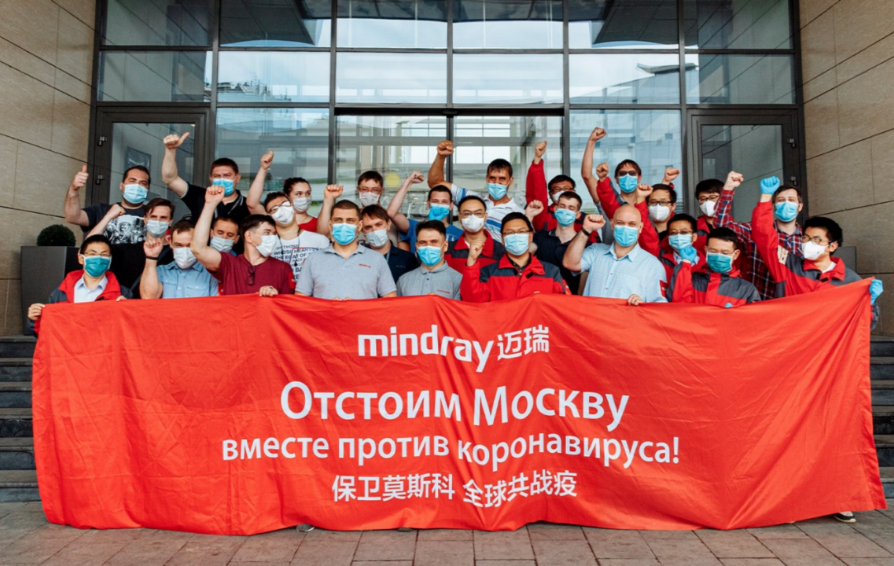From May 8th to June 26th, 2020, 9 Service Engineers from Mindray HQ visited Russia in order to work with the Mindray Russia service team to support frontline healthcare workers and thus help fight the coronavirus epidemic.
May 8, 2020 Onboard a chartered flight for the first time in my life
Liang Yue, Service Engineer of Mindray HQ

"A good start is half the battle", I muttered silently to myself the moment the plane took off.
When I first got the task of supporting the situation in Russia, everyone felt that it was an impossible task. Due to the severity of the epidemic at that time, flight routes were heavily controlled and cross-border flights were very restricted, making it impossible for us to buy air tickets through conventional channels. Fortunately, it was with the help of the colleagues from the Russian office and our careful planning and organization, coupled with the strong support of the two governments, that we managed to obtain special official-business visas in the shortest time. The aviation sector also helped us, whisking our party to a destination more than 4,000 kilometers away.
I did not expect my first trip taking a chartered flight to be like this. Working in these really difficult times can be distressing. We just have to take it one day at a time. Needless to say, we’re all looking forward to the day of victory over the epidemic.
May 31, 2020 Another long day
Mikhail Nikanorkin, service engineer of Mindray Russia

Three months has passed since the coronavirus arrived in Russia. Work was hard in the hospitals at the beginning.
It was difficult to complete the task on time, as our schedule depended the time when the construction companies could finish building the makeshift hospitals. The hospital we served a few days ago was in an old building dated back to the former Soviet Union time, with narrow entrances and exits, and the equipment could not be taken inside at all. There was no other way but to widen the doors and windows, enabling the equipment to be smoothly transported to the hospital. It was difficult to work in the red zone (the intensive care isolation ward of the anti-epidemic hospital), where I had to be in the same room with severely ill Covid-19 patients, and the only thought in my head was not to get sick and not infect my family.
Gradually, everyone has been adapting to the working mode. Every week, we plan for the hospitals we will serve in advance, preparing anti-epidemic materials, installation tools, and testing tools. Tasks are assigned the night before, and each team sets out early the next morning to perform tasks. I always feel that time is not enough. More than ten hours a day passes like the blink of an eye. Sometimes it is in the early hours of the following morning when I finally get out of the hospital.
But we still have our own favorite working hours. Noon is the best time of the day, because working at this time can reduce the impact on the operations of the hospital and also reduce our risk of exposure to infection. Therefore, we have developed the habit of skipping lunch and we installed and debugged equipment using every available second. Today is Sunday, which is the best working day for us, because the hospital does not conduct tests and we can work without any interference. When I work in a hospital for 12 hours or more, only two feelings remain: fatigue and hunger, but I still feel satisfaction from the work done.

June 11, 2020 Спасибо
Sun Guochao, service engineer of Mindray HQ

The first sentence in Russian I learned was taught to me by a hospital director.
During the tasks I did today, the director greeted us at the entrance of the hospital, before showing us the dressing room, and then leading us to the red zone - the farthest he could go. After finishing the task, the director and his colleagues surrounded us and spoke excitedly to us. I didn't understand a word. A colleague translated it in simple English: "The Chinese are the best: we thank you!" After he stopped talking, the director solemnly handed us two hand-painted badges. "Спасибо," he said repeatedly. Only then did I understand the meaning of this sentence and was deeply touched. I quickly took the badge with both hands and kept saying "Thank you" in response to his gratitude.
Although there was a language and cultural barrier, I could still sense the unity of different ethnic groups in fight against the disease. The Russian colleagues worked overtime with us, from planning before the trip to supporting the hospital. The medical staff of Russia’s frontline hospitals are doing their best to support our work in order to save more lives. When I return to China, I will send this badge to my parents' house and keep it as a memento.
June 27, 2020 We will never forget
Chen Huan, Service Engineer of Mindray HQ
The return ticket for heading home was as difficult to find as the tickets to come in. After many twists and turns, we finally set off for home on the 26th. The flight attendants wore the top-level protective equipment and repeatedly checked the body temperature of the passengers. We are now in quarantine in Lanzhou and can return home to Shenzhen in two weeks.
In the past two months, we have supported 51 hospitals. Sometimes I still think of the body bags on both sides of the corridor in the red zone, and am still deeply shocked. Let’s just say you don’t get to experience life and death like this all the time in your life.
When the steaming Lanzhou noodles were served on the table, I realized I hadn't had a decent Chinese meal in quite a while. It was the Dragon Boat Festival two days ago. Because we couldn’t return to China before the start of the festival, our supervisor deliberately sought out a Chinese restaurant and ordered Zongzi for everyone. Although the conditions were humble, on the eve of the trip all colleagues spent the holiday like a family, with a lingering sense of warmth.
It’s strange, but when I was in Russia, I thought about my family every day. Now that I have returned to China, I am beginning to miss my colleagues and friends who worked together with me back in Russia. I heard the song "Moscow Nights" when I was young, and after returning from Russia, I even casually hummed it to myself: "So you’ll cherish dear, through the passing years, these beautiful Moscow nights." Over all my years of work, Russia has become like a second home to me. Maybe just like this time, if there is a local need for services again, I will still be duty-bound to go and support them. What’s more unforgettable are my teammates. Faced with unknown risks, it was still worthwhile to share the joys and sorrows with my brothers there.
We will never forget.
Mindray established a Russian subsidiary in 2007. With high-quality products, agile solutions and proactive localization strategies, Mindray's influence in the Russian market is becoming ever more prominent. Today, Mindray has established a strong professional team in Russia, with offices in Moscow and Siberia, and about 90% of its 70 employees are local residents. Mindray is in a leading position in the Russian medical equipment import market, and its main product market share ranks among the top three. Mindray's medical devices serve Russia's top medical institutions, including many medical research centers that integrate medical treatment, teaching and scientific research.
During COVID-19, Mindray worked with Russian medical staff and spared no effort in saving lives. Mindray shipped medical supplies and provided solutions to Russian hospitals as quickly as possible, and used online channels to collaborate with international medical experts and guide medical staff so as to provide the patients with better treatment while reducing the risk of infection. The mission of saving human lives is more important than ever, and we are doing our best to make medical care within every human being’s reach.
